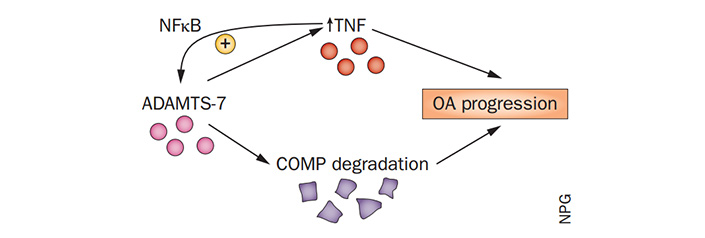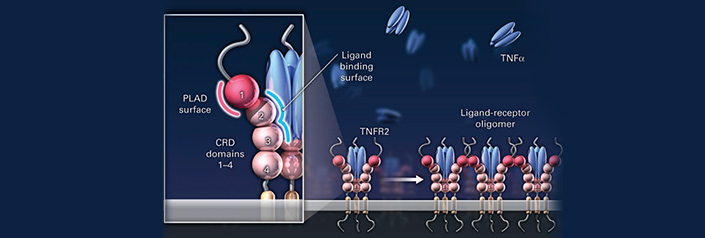Chuan-Ju Liu, PhD
Cards
About
Research
Overview
Arthritis is a degenerative disease that affects more than 66 million individuals in the United States alone. The destruction of the extracellular matrix of cartilage and bone is thought to be mediated by excessive proteolytic activity and an imbalance between inflammatory cytokines and their antagonists. The discovery of matrix-degrading enzymes and the inhibitors that antagonize the actions of cytokines is therefore important from both a pathophysiological and a therapeutic standpoint.

In the Liu Lab, our studies have led to the identification of ADAMTS-7 and ADAMTS-12 as two metalloproteinases associated with cartilage destabilization and the pathogenesis of arthritis.
In addition to our investigation into the role of ADAMTS, we have turned our attention to progranulin (PGRN), an autocrine growth factor-like molecule with multiple functions, because it was originally isolated as both a chondrogenic and osteoarthritis-related growth factor in our laboratory. Importantly, we also identified PGRN as a binding partner of tumor necrosis factor (TNF) receptors, also known as TNFRs, which are implicated in the regulation of inflammation and autoimmunity.

Our primary focus, accordingly, is to further investigate the roles of PGRN in arthritis and autoimmune diseases, in hopes of using PGRN and its derivatives in the development of new interventions for various degenerative and inflammatory conditions.

In our efforts to determine the role of PGRN in lung inflammation, we unexpectedly identified PGRN as a factor involved in Gaucher disease, one of the most common lysosomal storage diseases. Isolation of PGRN as a Gaucher disease modifier provides a foundation for future discoveries relating to this crucial factor in its disease pathogenesis, as well as in uncovering a unique target for developing novel therapies to combat Gaucher disease and probably other lysosomal storage diseases as well.
Sodium channel Nav1.7, previously believed to be exclusive to neurons, has been identified in chondrocytes. Despite its low density, chondrocyte-expressed Nav1.7 plays a significant role in osteoarthritis progression. Genetic deletion or pharmacological inhibition of Nav1.7 reduced joint damage and alleviated joint pain in various mouse osteoarthritis models. The potential use of existing non-specific Nav blockers or Nav1.7-specific inhibitors represents an unexplored avenue for disease-modifying treatment in osteoarthritis. https://doi.org/10.1038/d41586-023-03845-2
Medical Subject Headings (MeSH)
Links & Media
News
- February 12, 2024Source: WTNH
Epilepsy medication could help those with osteoarthritis
- January 21, 2024Source: CT Insider
Yale University study a potential game changer for treating osteoarthritis
- January 19, 2024Source: Medical News Today
An epilepsy drug: A new way to treat osteoarthritis pain?
- January 03, 2024
Breakthrough in Osteoarthritis Research: Nav1.7 Sodium Channels Unveiled as Potential Game-Changer
Get In Touch
Contacts
Orthopaedics & Rehabilitation
P.O. Box 208071
New Haven, CT 06520-8071
United States
Locations
Rm0535B
Academic Office
